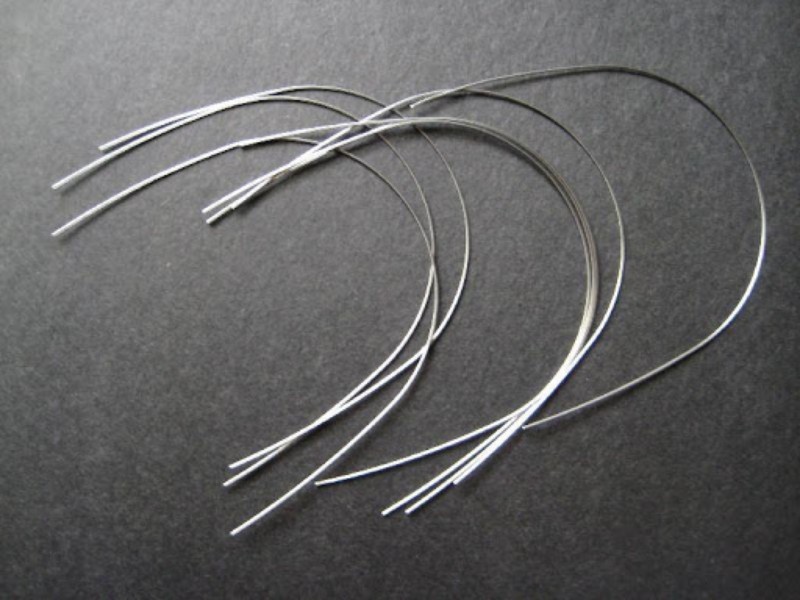The unique properties of NiTi have provided the enabling technology for many groundbreaking applications in the medical and dental industries. These applications have included everything from surgical tools to permanent implants, including implants within the bloodstream.Two particularly successful Nitinol medical devices are the SIMON NITINOL FILTERTM (SNF) and the Mitek(R) bone suture anchor. The SNF is an umbrella shaped device deployed via the shape memory effect to entrap blood clots in the vena cava. The SNF was developed in the 1970s and since that time has been implanted successfully in hundreds of patients.
Mitek(R) suture anchors have revolutionised the field of orthopedic surgery by providing a secure, stable attachment for tendons, ligaments, and other soft tissue to bone. Consisting of a titanium or Nitinol body with two or more arcs of NiTi wire, the Mitek Anchor is inserted through a small incision into a hole drilled into the bone. Since its introduction in 1989 for shoulder surgery, use of the Mitek Anchor has been expanded to include 25 orthopaedic applications and one urological application.
The excellent biocompatibility, very high corrosion resistance, and excellent cytocompatibility of Nitinol has made these unique applications possible. The Nickel in NiTi is chemically joined to the Titanium in a strong intermetallic bond, so the risk of reaction, even in patients with Nickel-sensitivity, is extremely low. Of course, the necessary regulatory approvals still must be received for each new application.
The application of NiTi alloy as a biomaterial has grown rapidly in recent times due to which there has been a great deal of research regarding the biocompatibility of NiTi in implants. The major concern with NiTi in implants is related to the corrosion of NiTi which happens due to the acidic pH in human blood that generally damages the implant material. Another major concern arises from the excessive amount of Ni, which can cause various types of damage including asthma, cellular hypersensitivity, cytotoxicity, and genotoxicity. In order to avoid the release of Ni, various coatings are applied to the NiTi top layer that includes the TiN layer, which helps to decrease the rate of release of Ni ions. Therefore various trials have been conducted on humans and animals in various parts of their bodies to check the biocompatibility of NiTi so that it can be used as an implanted biomaterial. The two major categories of trials are in vivo and in vitro trials, which are carried out in both animals and humans. The results obtained from these trials have helped in providing good authentication of NiTi for use as a biomaterial. Furthermore, various types of materials were also used in these experiments to compare them with the efficiency of NiTi alloy as a biomaterial. Several materials are also being explored to obtain an efficient biomaterial can counter the toxicity of Ni and hence be biocompatible with the human body.
Find out more about NiTi
NiTi is used in a wide range of applications in markets such as vascular intervention, orthopedic, neurovascular, endoscopy and dentistry. With over 20 years of experience in manufacturing and shape setting Nitinol tube, sheet, and components for the medical device industry, we have the expertise to meet rigorous specifications.
An advanced material like Nitinol possesses critical physical and mechanical properties and offers elegant solutions to meet complex anatomical and physiological needs. Nitinol’s biocompatibility, kink resistance, superelasticity and ability to shape set, helps medical device designers to develop next-generation medical devices. From producing a cost-effective implant grade premium ID Nitinol tube (improving stent yield and cost control for stent producers) to excellent thickness control to create the thinnest sheet in the industry, JM is your trusted choice for Nitinol.
Our products include:
- NiTi wire
- NiTi tube.
- NiTi sheet and foil.
- Shape setting and machine NiTi components.

